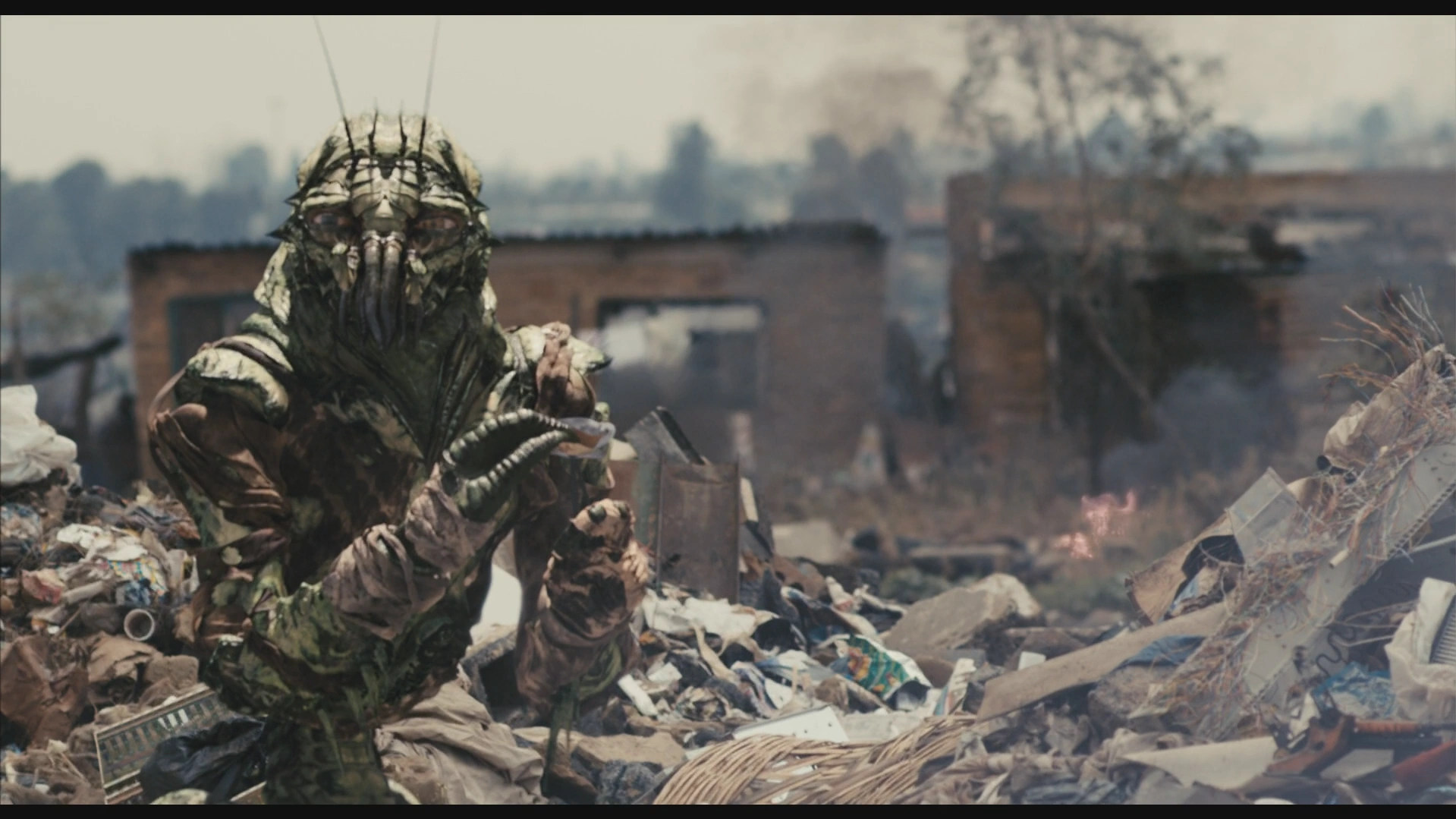
Why do so many aliens want to kill us? Okay, maybe humanity leaves a lot to be desired. There’s war, murder, avarice aplenty, and people that want to elect Donald Trump. If we haven’t broken the planet we live on, we’ve sure as hell damaged the packaging. Our celebrated social networks leave us staring at our phones, hardly noticing the actual world in front of us.
But we don’t completely suck. There’s art and inventions and love… still, fucking Donald Trump? Maybe the aliens have a point. Don’t get me wrong. I love me a Starship Troopers or a Predator or an Alien, when that unknowable other is just a vicious killing machine here to reduce us to emphatic survival. But it’s not often that we see aliens as screwed up as we are. Which is one of the many things that makes Neil Blomkamp’s District 9 so great. The aliens and their massive ship hovering over a metropolis aren’t here to destroy us with monument-shattering death rays. Their spacecraft broke down, they’re sick and dying, and whatever their interstellar traveling, they’re completely S-O-L. The film’s a brilliant exploration of a refugee civilization landing on our doorstep, and the amazing awfulness humans bring to bear in dealing with the problem.

District 9 sets the stage beautifully, marshaling news footage and documentary-style interviews to reveal the aliens’ arrival, twenty years before the narrative starts. Their ship maroons above Johannesburg, and South Africa finds itself settling an entirely new species. The parallel to black shanty towns is obvious, and makes for a discomfiting insightful allegory. The aliens are called “prawns,” for their resemblance to the bottom-dwelling arthropods and their love of scavenging through garbage. They’re treated with a casual racism anyone could identify with, mocked for their utterly foreign physiognomy and disgusting habits. And yet, how true the parallels ring, whether through the lens of South Africa’s troubled racial history or today’s xenophobic paroxysms, Syrian refugees or Donald’s ludicrous Mexican wall.

The story kicks off in earnest with a verité style, following the very bad day of Wikus Van De Merwe (Sharlto Copley), an officious bureaucrat in charge of relocating the prawns to a new encampment well removed from the city proper. Wikus works for Multi-National United, a munitions corporation contracted to run the aliens’ camp. A rule-quoting, small-minded bureaucrat, Wikus is as oblivious to his employer’s sinister undertakings as he is to his own dismissive racism. His chilly father-in-law puts him in charge of the sure-to-be disastrous relocation.
It quickly becomes apparent Wikus isn’t really capable of the job. He ships out with a small cadre of soldiers, knocking door to door, cajoling the aliens to sign papers to make the relocation, you know, “legal.” The film is overflowing with note-perfect strange details, from the aliens’ clicking guttural language and intense love of canned cat food to the Nigerian criminals who extort the aliens for money and peculiar, otherworldly weaponry. That weaponry becomes a real focal point. Keyed to alien biology, humans can’t fire the weapons at all. Which leaves corporations and bandits alike curious and frustrated, wondering what capabilities are lying under their noses.

Wikus confiscates the tech he comes across, and even burns an alien nursery, gleefully cackling about the popcorn sounds of the alien babies bursting, their bodies seared and engulfed in flame. An unwitting run-in with undercover alien leaders finds Wikus messing with tech he shouldn’t, and he sprays himself in the face mishandling a canister of volatile liquid. That accident has dreadful effects, altering Wikus’s body and slowly changing him into an alien. The transformation warps his body, and he’s hunted by MNU and the Nigerians, each desperate to control him as his reconstituted DNA enables him to use the weapons no human could.

A protegé of Peter Jackson’s with a background in CGI, Blomkamp’s direction is superb. Even the alien tech has a grimy, lived-in feel, and the Johannesburg shanty town’s spartan, garbage-strewn veracity is indelible. As is often the case, the pseudo-doc accouterments fade away as the film builds to an action-laden climax, but Blomkamp’s imaginings feel incredibly grounded. The insipid Wikus’s emotional journey is the highlight. As his humanity is stripped away, he slowly discovers an empathy that transcends the harsh boundaries of different sentient species. He and his alien frenemy form a powerful bond, despite Wikus’s self-serving betrayals. The alien holds the possibility of a cure for Wikus, but to get the cure the alien must escape. District 9 shows a sliver of hope for us even as so many of our endeavours are cruel and bleak. It’s a brilliant film, capturing how the real evil aliens are probably us.

